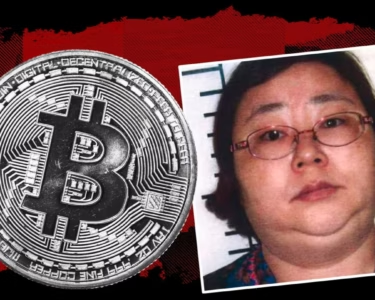On May 1, 2025, French President Emmanuel Macron made headlines with a bold declaration about Africa’s future, vowing that France “will not abandon” the continent. The statement, shared in a retweet by African Hub (@AfricanHub_) on X, signals Macron’s intent to deepen France’s engagement with Africa at a time when the continent is undergoing profound political, economic, and social transformations.
But as Macron seeks to redefine France’s role, his promise raises both hope and skepticism, given the complex history of Franco-African relations and recent geopolitical shifts.
A History of Engagement—and Controversy
Macron’s focus on Africa is not new. Since taking office in 2017, he has sought to reshape France’s relationship with the continent, moving away from the neocolonial “Françafrique” model—a system of economic, military, and political influence over former colonies that has long been criticized for perpetuating exploitation.
A 2021 report by Stiftung Wissenschaft und Politik noted that Macron has prioritized engaging non-state actors, such as civil society groups, and diversifying partnerships beyond francophone Africa to include countries like Rwanda and South Africa.
His 2021 visit to Rwanda, the first by a French president since Nicolas Sarkozy in 2010, was a symbolic step toward addressing France’s role in the 1994 genocide and rebuilding trust, as reported by ISS Africa.
Yet Macron’s rhetoric has not always been well-received. In 2017, during a G20 summit, he sparked outrage by describing Africa’s challenges as “civilizational” and pointing to high birth rates—comments that many Africans and global observers, including NPR, decried as perpetuating racist stereotypes. The backlash highlighted the delicate balance Macron must strike as he seeks to redefine France’s role without echoing the paternalistic tones of the past.
A Shifting Landscape in the Sahel
Macron’s latest statement comes against the backdrop of France’s evolving military presence in Africa, particularly in the Sahel. Since 2022, France has withdrawn troops from Mali, Burkina Faso, Niger, and Chad following military coups and growing anti-French sentiment, marking what many analysts call the decline of Françafrique.
According to a Wikipedia entry on the withdrawal, these moves were driven by local opposition to French intervention against Islamist insurgencies and the rise of governments less aligned with French interests. Some Sahel states have even turned to Russian military contractors, a shift that geopolitical analyst Jonathan-Fenton Harvey described as a “significant turning point” in Western-African relations.
Macron, however, has remained defiant. On January 6, 2025, he insisted that France’s military interventions in the Sahel were justified and even suggested that the region’s leaders should “thank” France—a remark that risks reigniting tensions. Meanwhile, a November 2024 report by Jean-Marie Bockel, France’s special envoy for African operations, advocated for a “renewed” and “rebuilt” partnership, signaling Macron’s intent to pivot toward a more collaborative approach.
A Promise with Deep Roots
Macron’s vow not to abandon Africa also echoes France’s long history of strategic alliances in the region. As far back as the 16th century, the Franco-Ottoman alliance of 1536 between Francis I and Suleiman I allowed France to leverage North African ties to counter European rivals like Charles V, according to Wikipedia. This historical precedent underscores France’s enduring interest in Africa as a geopolitical partner.
Today, Macron appears to be channeling that legacy into a modern context, emphasizing partnerships that address contemporary challenges like trafficking, corruption, and demographic transitions—issues he highlighted in his 2017 G20 remarks.
But promises alone may not suffice. ISS Africa’s analysis of Macron’s earlier visits to Rwanda and South Africa emphasized that France must go beyond symbolic gestures and “rhetorical pronouncements” to enact meaningful change. African nations, in turn, must assert their own interests to ensure that partnerships with France—and other global powers—truly benefit the continent.
What’s Next for France and Africa?
Macron’s statement is a clear signal that France remains committed to Africa, but the path forward is fraught with challenges. The Sahel withdrawals have dented France’s influence, and the rise of alternative partners, such as Russia and China, has given African nations more options. At the same time, Macron’s outreach to non-francophone countries and his focus on civil society suggest a willingness to adapt to a changing landscape.
For Africa, Macron’s promise could open the door to new opportunities—if it is backed by concrete action. As the continent navigates its own future, from the Alliance of Sahel States to broader regional integration efforts, African leaders will likely demand partnerships that prioritize mutual benefit over historical imbalances. Whether Macron can deliver on his vision—and overcome the ghosts of Françafrique—remains to be seen.
As the French president doubles down on his commitment, one thing is clear: the relationship between France and Africa is at a crossroads. The coming years will test whether Macron’s bold statement marks the beginning of a new chapter—or simply another page in a long and complicated history.







1 Comment